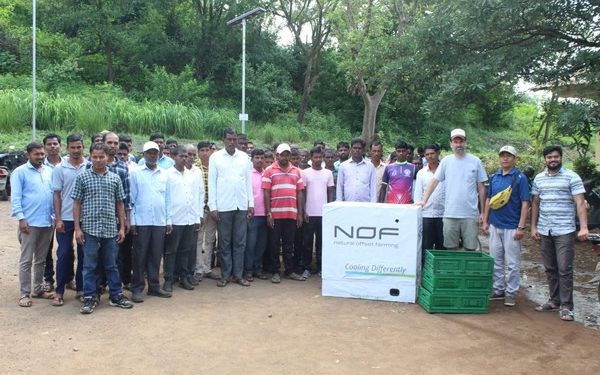Innovative Solutions to Combat Significant Post-Harvest Losses in India
India, a major producer of essential agricultural commodities including paddy, wheat, oilseeds, milk, fish, fruits, and vegetables, faces significant challenges with post-harvest losses. These losses, which exceed global standards, adversely affect overall yields and result in substantial financial setbacks for farmers. A 2022 study by Nabard reveals that vegetable losses range between 4.87% and 11.61%, while fruit losses span from 6.02% to 15.05%.
To address these challenges, innovative cooling technologies are emerging as potential solutions. The Israeli startup Natural Offset Farming (NOF) has introduced a promising advancement with its patented cooling technology. This technology utilizes liquid CO2 to provide a cooling-as-service model, offering an energy-efficient solution that operates independently of electricity. This method represents a significant leap forward in post-harvest management.
Yoni Ben Zaken, co-founder of NOF, emphasizes the versatility of their device, which can handle 500 kg, 200 kg, or 100 kg of produce. The technology has already garnered interest from major retailers and has been deployed in Maharashtra and Haryana. Its success with various crops is notable, including a significant extension of shelf life for strawberries in Maharashtra’s Satara district—from 2–3 days to 7–8 days. This extension is crucial for enhancing yield efficiency and reducing waste.
The cooling device, priced at ₹12,000, is designed with the needs of Indian smallholder farmers in mind. NOF’s partnership with entities such as Mother Dairy demonstrates the practical applications of this technology, including its impact on extending the shelf life of apricots from Leh. This technology not only addresses immediate cooling needs but also aligns with broader efforts to improve post-harvest management and reduce waste in Indian agriculture.
As the technology gains traction, it holds the potential to significantly reduce post-harvest losses across various crops, ultimately supporting better financial outcomes for farmers and contributing to more sustainable agricultural practices.
Error



